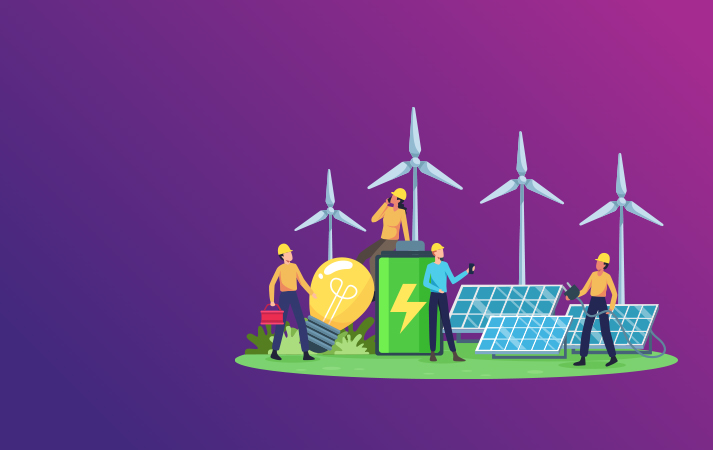Published on: March 10, 2022 at 9:35 AM
The necessity for environmental protection in light of a changing climate was unsettlingly underlined by a scathing assessment from the Intergovernmental Panel on Climate Change (IPCC) at COP26 late last year.
The IPCC stated that “it is unequivocal that human influence has warmed the atmosphere, ocean and land.”
Energy and utilities industries are in the vanguard of Government plans to deliver Net Zero by 2050, as well as the 10 Point Plan for a Green Industrial Revolution launched in 2020.
Recent policies from the UK Government and the devolved administrations have increasingly focussed on meeting the needs of the 2050 Net Zero carbon target.
Government, academia, and business are talking more and more often about what green jobs and skills might mean for Net Zero.
As an industry body, Energy & Utility Skills is a leading partner in the drive to ensure that organisations have the safe, skilled, and sustainable workforce needed to achieve these goals.
It is vital that, in order to determine what the green skills priorities need to be for the energy and utilities sector, we establish a solid working definition for what a green job is or should be.
After looking at a range of definitions for what green jobs are, including those from last July’s Green Jobs Taskforce, Energy & Utility Skills presented the Green Collar approach.
This approach broadly divides green jobs into two categories – Direct and Indirect.
Direct Green Collar Jobs can be in new or current occupations that directly contribute to a low carbon economy, or directly support environmental goals such as mitigation against climate change risks.
For example, this would include Wind Turbine Technicians, Nuclear Engineers, Flood Management operatives, or those working in Energy from Waste Recovery operations.
This definition also includes established occupations that can be enhanced with additional skills to repurpose them, such as extending the skills of a Smart Meter Installer to become a Low Carbon Domestic Technologies Installer.
These jobs and skills are likely to be in businesses or sectors that see themselves as green.
Indirect Green Jobs can be in existing roles that can contribute to a greener economy without the need for additional skills.
This could include cross-sector or generic roles that enable the green economy through work in the energy and utilities sector; for example, a driver delivering the components to build a wind turbine, or a data scientist analysing consumers’ energy data.
Indirect green jobs and skills could be in any business or sector.
Taking this approach could allow the energy and utilities sector to ensure that many of the roles it has on offer can be recognised as genuinely ‘mission critical’ in terms of achieving the net zero target and mitigating climate change.
It would also highlight our industries as the leading providers of these Green Collar Jobs.
Additionally, it would allow our sector’s pivotal role in decarbonising our economy to be highlighted to the public, attracting the new recruits it needs – see the Workforce Renewal and Skills Strategy for more details.
If you have feedback or questions about the Green Collar approach, please contact our Policy and Research team.
